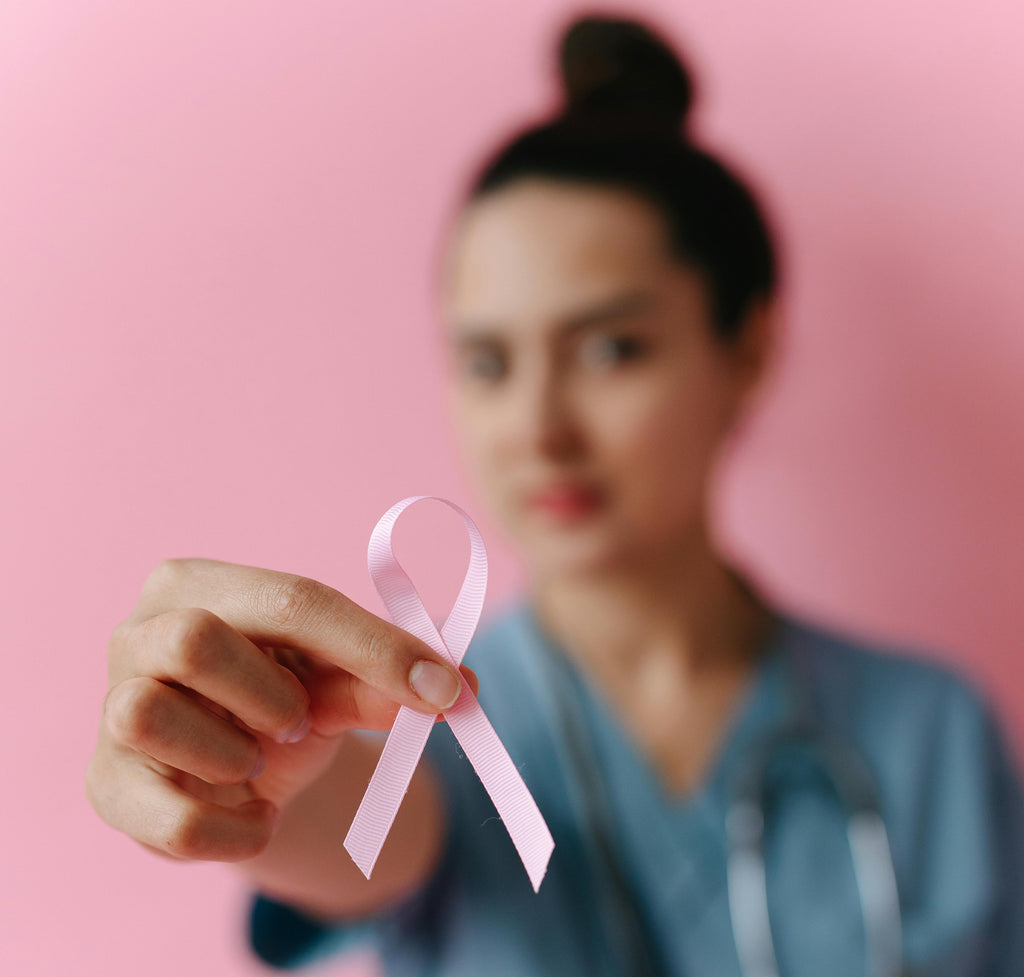
How to support someone going through chemotherapy

Chemotherapy is a common treatment for cancer, involving the use of drugs to destroy cancer cells. The impact on patients' lives is profound, often accompanied by physical and emotional challenges such as fatigue, nausea, and emotional distress. Supporting a loved one through chemotherapy is crucial to their well-being and recovery journey.
This article provides practical insights on how to support someone going through chemotherapy. By understanding their needs and challenges, you can offer meaningful assistance. You will learn:
-
Emotional support techniques, emphasizing listening and open dialogue.
-
Practical ways to help with daily tasks and alleviate stress.
-
The importance of accompanying them to medical appointments.
-
Meal preparation tips tailored to their dietary needs.
-
Thoughtful gifts that comfort and uplift during treatment, including gift ideas for cancer patients.
The significance of being present and maintaining regular contact.
Explore these supportive strategies to positively impact the life of someone undergoing chemotherapy. Consider creating a thoughtful chemo care package from our range of chemo kits or explore our selection of accessories that can provide comfort during this challenging time. Additionally, wearing our Cancer Survivor Sweatshirt can serve as a symbol of hope and strength for those overcoming cancer.
Understanding Chemotherapy
Chemotherapy is a type of cancer treatment that uses drugs to destroy cancer cells. This process involves administering medications that target and eliminate rapidly dividing cells, which include both cancerous and certain healthy cells. While effective in treating various types of cancer, chemotherapy can also lead to several side effects due to its impact on the body's normal functions.
Common Side Effects:
Patients undergoing chemotherapy often experience a range of side effects that can vary in severity. Some of the most common include:
Fatigue: Persistent tiredness is one of the most prevalent side effects, making daily activities challenging.
Nausea and Vomiting: Many patients report feeling nauseous or vomiting as their body reacts to the treatment.
Hair Loss: Chemotherapy can affect hair follicles, leading to temporary hair loss.
Mouth Sores and Appetite Changes: These can make eating difficult, impacting overall nutrition.
To help manage these side effects, chemo kits are available. These kits often contain items that can help alleviate some discomforts associated with chemotherapy.
Dietary Adjustments and Requirements:
Proper nutrition is crucial during chemotherapy to help maintain strength and support recovery. Patients may need to make dietary adjustments tailored to their individual needs and side effects:
Small, Frequent Meals: Eating smaller portions more frequently can help manage nausea and maintain energy levels.
High-Calorie, High-Protein Foods: Foods like nuts, cheese, and lean meats can provide necessary nutrients without large volume intake.
Hydration: Drinking plenty of fluids is vital for flushing out toxins and preventing dehydration.
Soft Foods: For those with mouth sores, soft foods such as yogurt or creamy soups are easier to consume. In such cases, incorporating specific dietary products designed for chemotherapy patients could be beneficial.
Understanding these aspects of chemotherapy enables caregivers to better support their loved ones by addressing both physical discomforts and nutritional needs effectively. Additionally, exploring thoughtful gift ideas for cancer patients could provide emotional support during this challenging time.

Ways to Support Someone Going Through Chemotherapy
1. Emotional Support
Emotional support strategies play a crucial role in helping someone navigate the challenges of chemotherapy. Being a good listener is perhaps the most important aspect of providing emotional support. When you listen actively, you offer a safe space for your loved one to express their thoughts and feelings without judgment or interruption.
Techniques for Effective Listening
Maintain Eye Contact: This simple act shows that you are fully present and engaged in the conversation. It conveys empathy and understanding, making the person feel valued and heard.
Let Them Lead the Conversation: Allow them to guide the discussion about their experiences, fears, or hopes. This approach empowers them to open at their own pace and discuss what truly matters to them.
Avoid Interruptions: Refrain from interjecting with your own stories or advice unless asked. This helps maintain focus on their needs and reinforces that this time is dedicated solely to them.
Reflective Responses: Use phrases like "That sounds really tough" or "I can understand why you feel that way" to show that you are processing what they are saying and empathizing with their situation.
Encouraging open dialogue about feelings is essential in building trust and fostering a supportive environment. Sometimes, individuals undergoing chemotherapy might feel hesitant to share their emotions due to fear of burdening others or appearing vulnerable. By actively encouraging open conversations, you reassure them that it’s okay to express whatever they’re feeling—be it fear, sadness, or even hope.
Incorporating these listening skills not only strengthens your connection but also provides much-needed emotional relief for someone going through chemotherapy. It's not just about offering solutions; it's about being there, ready to share their journey by truly understanding their perspective.
The journey through chemotherapy involves both physical and emotional hurdles; hence, having someone who genuinely listens can make all the difference. Whether through face-to-face interactions or regular check-ins via text or email, showcasing your availability and willingness to listen can provide immense comfort during such trying times.
2. Practical SupportWhile emotional support is vital, practical assistance can also significantly alleviate some of the burdens faced during chemotherapy. Here are some ways you can help:
Meal Preparation: Chemotherapy often affects appetite and energy levels. Offering to prepare meals or organize meal deliveries can be a huge help.
Accompanying Them to Appointments: If they're comfortable with it, offer to accompany them to chemotherapy sessions or medical appointments. Your presence can provide emotional comfort during these challenging times.
Creating a Comfortable Environment: Sometimes, simple gestures like keeping their living space tidy or ensuring they have access to entertainment can improve their quality of life during treatment.
3. Thoughtful GiftsGifts that acknowledge their struggle while providing comfort can be incredibly meaningful. Consider items like a F*ck Cancer Beaded Bracelet, which serves as both a stylish accessory and a reminder of strength against cancer.
Additionally, chemo swag such as cozy sweatshirts with uplifting messages can provide both comfort and encouragement. For instance, the Cancer Survivor Sweatshirt serves as a powerful affirmation of resilience in the face of adversity.
4. Practical SupportProviding practical support is crucial when considering how to support someone going through chemotherapy. This hands-on approach complements emotional support strategies, ensuring that patients feel cared for in all aspects of their daily lives.
Definition and Examples of Hands-On Support
Hands-on support for cancer patients involves assisting with everyday tasks that may become overwhelming during treatment. Here are some tangible ways you can help:
Errands: Offering to run errands such as grocery shopping or picking up prescriptions can alleviate a significant burden.
Cleaning: A clean environment is essential for health and comfort. Helping with household chores like vacuuming, dusting, or doing laundry can make a big difference.
Childcare and Pet Care: Helping with looking after children or pets ensures that the patient has peace of mind and can focus on their recovery.
Cooking: Preparing meals or organizing meal deliveries according to dietary requirements supports their nutritional needs.
Alleviating Stress Through Practical Assistance
Practical assistance reduces stress for both the patient and the caregiver. When you help with daily tasks, it allows the patient to conserve energy for healing and attending medical appointments. It also allows caregivers—who may already be overwhelmed with providing emotional support—to take a much-needed break.
Emphasizing both emotional and practical support during this challenging time ensures comprehensive care. By integrating hands-on support for cancer patients into your routine, you not only ease their physical burden but also contribute to their emotional well-being.
One way to provide that emotional support is through community-based resources like cancer support programs. These programs offer personalized assistance, which can include both practical and emotional support tailored to the patient's needs.
Additionally, providing thoughtful gifts can also serve as a form of practical support. For instance, gift ideas for male cancer patients can be particularly helpful in lifting their spirits during treatment.
Accompanying Them to Appointments
Being there for someone undergoing chemotherapy means more than emotional support; it often requires being physically present. Providing transportation to medical appointments can be a significant relief, especially when the patient might feel too fatigued or unwell to drive themselves. Offering a reliable ride not only reduces logistical stress but also ensures they reach their appointments safely and on time.
While at the appointment, taking notes during consultations can be incredibly helpful. Patients may find it difficult to remember all the details discussed with their healthcare providers due to the overwhelming nature of their situation or medication side effects. By jotting down important points, you help them understand and recall the instructions later when they need it most.
The importance of emotional reassurance during treatment sessions cannot be overstated. Being a comforting presence by simply sitting with them during chemotherapy infusions or waiting in the lobby can greatly ease their anxiety. Your presence is a reminder that they are not alone in this journey, providing comfort and stability amid uncertainty.
Here are some ways you can provide support during appointments:
Transportation: Offer rides to and from medical appointments.
Note-taking: Document key points during consultations for future reference.
Emotional Reassurance: Provide comfort during treatment sessions by being present.
By engaging in these supportive actions, you're contributing positively to their treatment experience, helping alleviate some of the burdens they face while navigating through chemotherapy.
Meal Preparation and Dietary Considerations
Navigating the dietary needs of someone undergoing chemotherapy can be challenging. Chemotherapy often affects appetite and taste, making it difficult for patients to enjoy meals or meet their nutritional requirements. These changes can manifest as an aversion to certain foods or a metallic taste that alters food perception.
Challenges of Eating After Chemotherapy:
Loss of Appetite: Many patients experience a reduced desire to eat, which can lead to weight loss and fatigue.
Taste Changes: Food might begin to taste different, often less appealing, due to treatment-related alterations in taste buds.
Tips on Meal Preparation:
Creating meals that are both nutritious and palatable is essential. Here are some guidelines for cooking for chemotherapy patients:
Focus on High-Calorie, Nutrient-Dense Foods: Incorporate foods like avocados, nuts, seeds, and olive oil into meals to ensure adequate calorie intake.
Stay Hydrated: Encourage hydration with broths, herbal teas, and water-rich fruits such as watermelon or cucumber.
Small, Frequent Meals: Smaller portions throughout the day can be easier to manage than large meals.
Suggestions for Easy-to-Reheat Meals:
Preparing meals in advance can significantly ease daily stress. Consider these easy-to-reheat options:
Soups and Stews: They are hearty, nourishing, and easily customizable to individual tastes.
Casseroles: These one-dish wonders can be packed with vegetables, proteins, and grains for balanced nutrition.
Smoothies: Blend fruits, vegetables, yogurt or protein powders for a quick meal option that is easy to consume.
Supporting someone through chemotherapy by catering to their dietary needs is a practical way to show care. Thoughtful meal preparation not only provides nourishment but also offers comfort during challenging times.
Care Packages and Thoughtful Gifts for Chemotherapy Patients
Creating a care package for chemo patients can be a meaningful way to provide comfort and show support. A well-thought-out care package acknowledges the unique challenges faced during chemotherapy while offering practical items that can ease the journey. It's essential to understand the importance of these cancer care packages, which not only provide physical comfort but also serve as a reminder that the person undergoing chemotherapy is cared for and supported.
Ideas for Care Package Items
Consider including these thoughtful items:
Personalized Care Packages
Personalization is key. Tailor your care package based on the recipient’s individual preferences and needs. For instance:
If they enjoy reading, include magazines or books.
For those who appreciate creative activities, add coloring books and pencils.
Useful Gift Examples
In addition to care packages, thoughtful gifts can significantly boost morale:
Hot/Cold Packs: Useful for relieving aches and discomfort.
Reusable Water Bottle: Encourages hydration, which is crucial during treatment.
The Impact of Thoughtful Gifts
Thoughtful gifts provide more than just physical comfort; they demonstrate empathy and understanding. They serve as a reminder that the person undergoing chemotherapy is cared for and supported, enhancing their emotional well-being during this challenging time.
Exploring different gift ideas ensures that your gestures are both practical and heartfelt, making a significant impact on their journey through chemotherapy. This sentiment is especially relevant during special occasions such as Valentine's Day, where unique ways to make Valentine's Day special for cancer patients can bring an extra smile to their face.
Moreover, it's crucial to recognize that certain types of cancer, such as sarcoma, have unique challenges associated with them. During Sarcoma Awareness Month, we emphasize the power of thoughtful care packages in providing comfort and support for sarcoma patients.

Being Present and Available During Treatment Journey
Being present is crucial for someone navigating the challenges of chemotherapy. Your presence alone can be a powerful source of comfort. Just simply being there, in both physical and emotional senses, helps them feel less isolated and more supported during their treatment journey.
The Significance of Being There
Whether sitting quietly with them during a treatment session or accompanying them on a walk, your presence speaks volumes. It communicates solidarity and offers silent strength. You might even consider gifting them an Oncology Nurse Women's Relaxed T-Shirt, which can serve as a comforting reminder of your support.
Consistent communication through quick texts or emails can reinforce your support. A simple message like "thinking of you" or "how are you feeling today?" can lift their spirits and remind them they're not alone.
Flexibility in Support
It's important to adapt to their needs, which might change throughout the treatment. Sometimes they may need company, other times space. Listening and observing cues will guide how best to provide support.
In addition to being there emotionally, consider practical ways to support them through this journey. For example, personalized Chemo Kits cancer care packages can provide comfort and care during chemotherapy treatment. These kits are designed to alleviate some of the burdens associated with treatment.
By maintaining this presence, you affirm your commitment to their well-being without overwhelming them. This approach fosters an environment where they feel safe to express feelings and reach out when needed.
Conclusion
Supporting a loved one through chemotherapy is a journey that requires empathy, patience, and practical actions. By embracing emotional support, providing hands-on assistance, and ensuring your presence during appointments, you make a significant difference in their experience.
Discover practical assistance for cancer patients by preparing meals or offering thoughtful gifts. One such thoughtful gesture could be sending a Chemo Kit, which can provide comfort and relief during treatment. Regular check-ins can also provide reassurance and show your ongoing commitment.
Start today—take these actionable steps to learn how to support someone going through chemotherapy effectively and compassionately. Your involvement can be a beacon of hope and comfort during this challenging time.


















